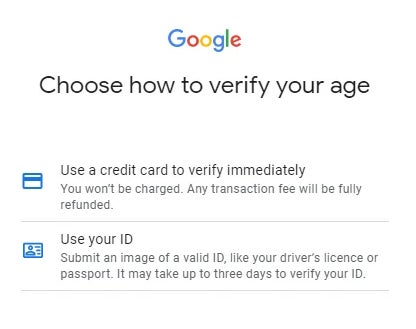The list of improvements to existing safeguards Google has in place for under-18 users also includes a new machine learning model that will make it harder for teens to lie about their age.
The Mountain View company has taken some steps toward providing age-appropriate experiences to teens when they use its products, including a number of changes for all users under 18. For example, Google recently introduced a SafeSearch Filter, restricting sensitive ad content, gating age-restricted content on YouTube & Play, and implemented teen wellbeing protections on YouTube.
But that’s not enough since Google has decided to use machine learning to determine the age of a user. The search giant announced this week that it plans to start testing a machine learning-based estimation model. The test will be limited to the United States at launch, but Google plans to bring the technology to more countries over time.

Age verification has been one of the weaker links in Google’s privacy strategy | Screenshot by PhoneArena
The machine learning model Google is going to test this year is meant to help the company estimate whether a user is over or under 18 so that it can provide a more age-appropriate experience.Google hasn’t yet explained how this machine learning model will work, so it remains to be seen whether or not it will be more effective than the safeguards it has implemented right now.
In related news, Google announced it’s rolling out a new sensitive content warning feature in Google Messages. This feature is opt-in for adults, but mandatory for kids and teens. It can be managed via Android Settings and features parental controls for supervised accounts.
For those interested in learning more about Google’s teens experiences, we have an extensive article that explains how the company plans to empower parents to manage their kids’ devices.

